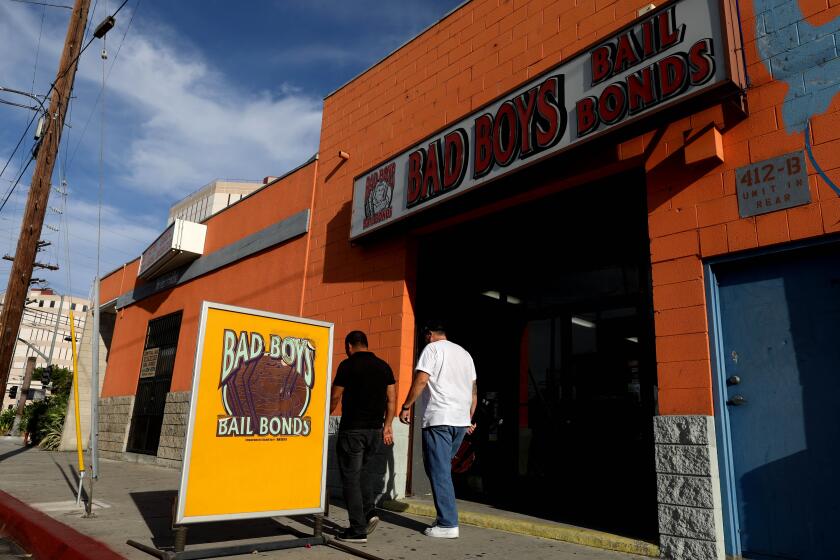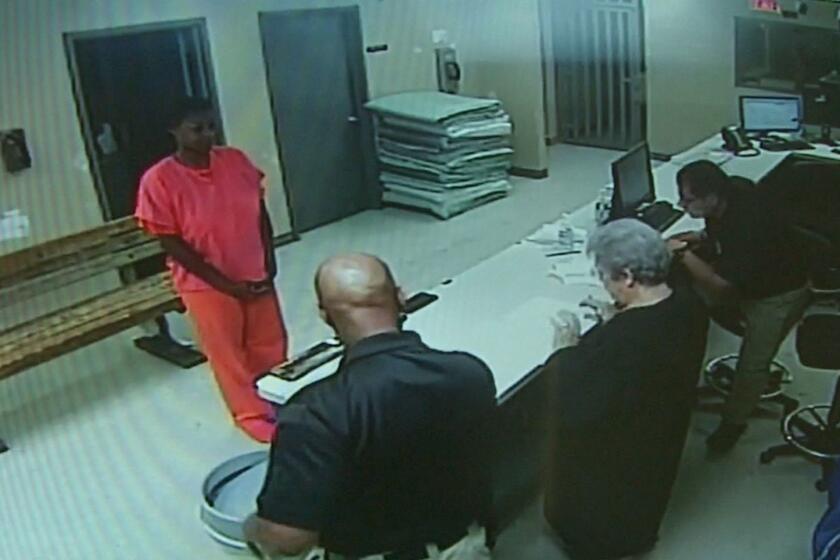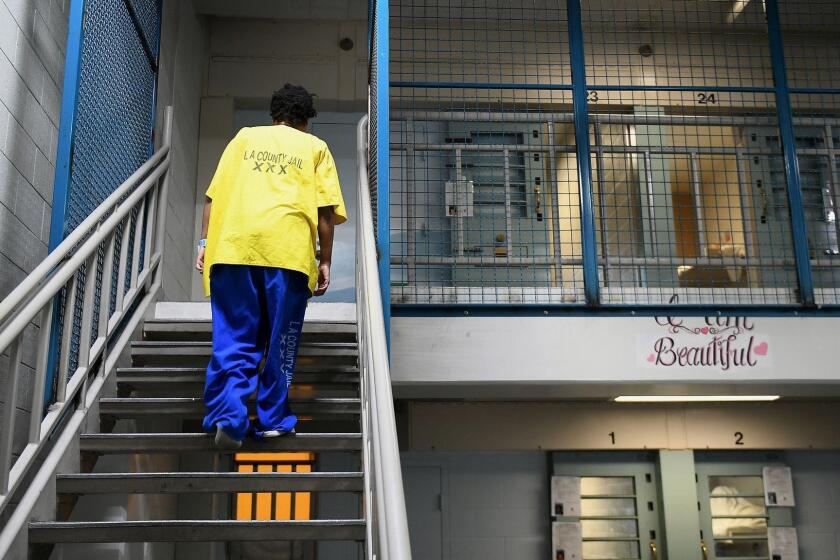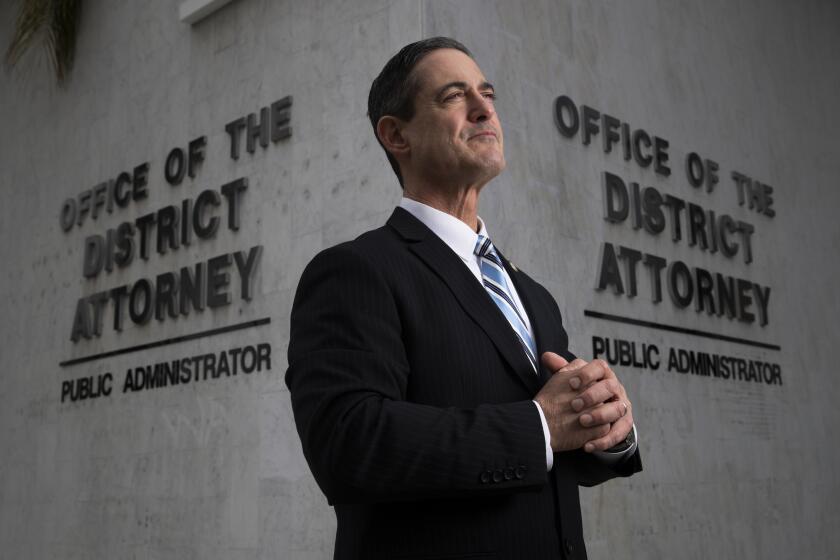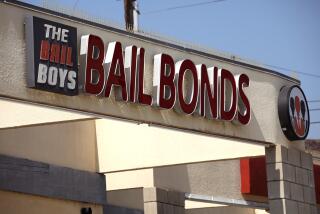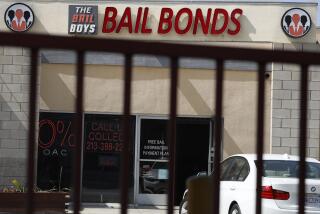You think you know what bail is? You’re probably wrong
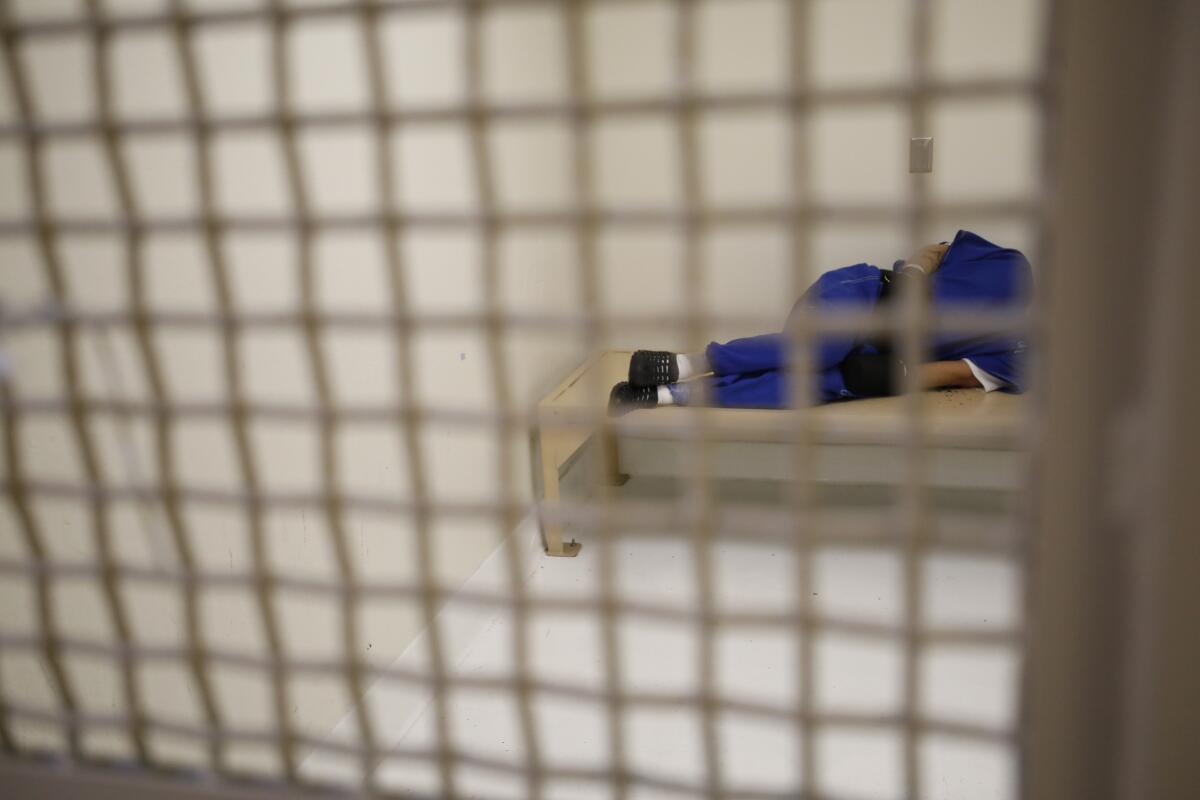
- Share via
Suppose you are arrested for stealing a car. You’ll be brought to the police station, where the officer on duty will tell you the price for your release. Under the 2022 version of the Los Angeles Superior Court felony bail schedule, a violation of the California Penal Code Section commonly known as grand theft auto, you must come up with $35,000 in order to go home.
If you show up for trial, you’ll get your money back, even you’re found guilty.
Bail-or-jail upon arrest will largely disappear from L.A. County, correcting an injustice yet raising concerns at a time of high-profile retail thefts. First in a series.
But few people walk around with that kind of cash. In that case, you can call a bail bond company, and the agent will pledge to pay the court the full amount if you don’t show up for your hearings. Bail bond agents will usually charge 10%, in this case $3,500, for the service. Even if you stay out of trouble and show up for all your court dates, you will never get that money back.
If you can’t come up with the 10%, you go to jail — at least until your arraignment several days later.
Arguments were filed last week in the 5th U.S.
What are all these payments called? It matters, because disagreements or misunderstandings about the terminology fuel confusion over justice policy. And those with a stake in the status quo — the bail bond industry, police, some politicians — can use that confusion to further their aims.
Most bail bond agents will tell you that the deposit of the full amount with the court is “bail.” The payment or promise posted with the court by the bail bond agent is known as “bond.”
Editorial: Tehama shooting is deadly evidence that California needs to reform its bail system
The gunman who went on a deadly shooting rampage in Tehama County on Monday apparently had been out on bail after being charged with stabbing a neighbor — an aspect of the grisly crime that underscores a huge but little discussed problem with money bail systems like California’s.
But in practice, the use of the word “bail” is more complicated. The definitions found in glossaries and dictionaries and used by courts, bail bond agents and others often conflict. There’s no single correct definition.
“Bail” has been used to mean the right to release; actual release, subject to conditions such as travel restrictions; money paid in exchange for release; a person who takes responsibility for the suspect who is released; and many other things besides.
“Bond” can be used to describe your promise to appear in court, whether or not it involves a bail agent.
Editorial: A ‘justice’ system that frees the monied and locks up the poor isn’t worthy of the name
A “justice” system that frees people who can afford to pay while locking up those without means is not worthy of the name.
New terms have been invented to distinguish between bail as a right to release regardless of payment, and bail as a payment to buy release. For example, some use “money bail” or “cash bail” to refer to a system that requires payment.
But others insist that “cash bail” refers exclusively to the defendant’s act of depositing the full refundable amount of money in court, as distinguished from using a bail bond agent. Still others say it can include depositing a percentage with the court, but not a bail bond agent.
The conversation about bail reform should be about the role of money but instead keeps zeroing in on crime. Anti-reformers seem to like the confusion.
The confusion about the term was made worse during the height of the pandemic, when California courts temporarily dropped bail for various crimes to “$0” to reduce the jail population and stop the spread of the virus. That meant those arrested for most nonviolent crimes could not be jailed for failing to pay bail because there was nothing to pay. The courts call it “zero-dollar bail,” but police and other critics generally shorten it to “zero bail,” which sounds like no bail but means the opposite.
Editorial: No, criminals aren’t rampaging across California because of our zero-dollar bail policy
California’s emergency zero-dollar bail order does not force officials to turn criminals loose on the public.
The Los Angeles Superior Court’s new Pre-Arraignment Release Protocol includes new bail schedules eliminating money payment as a condition of release for most crimes, not including serious crimes such as murder. It includes a zero-dollar bail program.
Those in the bail industry like to point out that bail is a right belonging to the defendant. Therefore, they imply, eliminating money bail undermines a right of the defendant. But that’s just a clever way of using the many meanings of “bail” as a political tool. As set forth in the state Constitution, the right to bail means the right to be released and does not necessarily involve money — no matter how many ways people willfully or mistakenly define the word “bail.”
More to Read
A cure for the common opinion
Get thought-provoking perspectives with our weekly newsletter.
You may occasionally receive promotional content from the Los Angeles Times.
